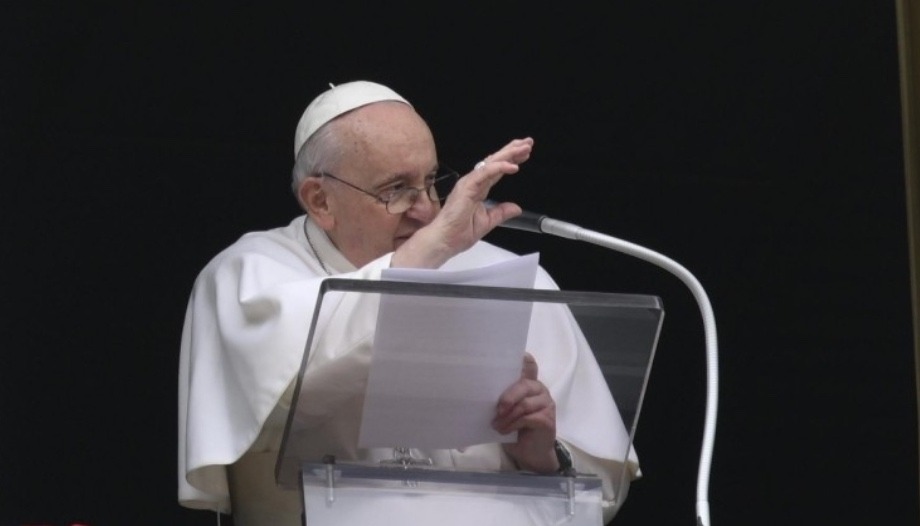Pope Francis recalled once again this Sunday the "so many victims of the earthquake" in Syria and Turkey; and also, as he has been doing with insistence, "the daily dramas of the beloved Ukrainian people, and of so many peoples who suffer because of war, or because of poverty, lack of freedom or environmental devastation: so many peoples... In this sense, I am close to the New Zealand population hit in recent days by a devastating cyclone". "Let us not forget those who suffer, and let our charity be attentive, let it be a concrete charity," he said.
"The words that Jesus addresses to us in this Sunday's Gospel are demanding and seem paradoxical: He invites us to turn the other cheek and to love even our enemies (cfr Mt 5:38-48)," the Pope began by saying before praying the Marian prayer of the Angelus and giving the Blessing to the faithful in St. Peter's Square.
"For us it is normal to love those who love us and to be friends with the one who is our friend; however, Jesus provokes us by saying: if you act in this way, 'what are you doing extraordinary?' (v. 47). What do you do that is extraordinary? This is the point to which I would like to draw your attention today", was the Pope's reflection.
"Extraordinary" is that which goes beyond the limits of the usual, which exceeds the usual praxis and the normal calculations dictated by prudence", Francis added. "In general, however, we try to have everything quite in order and under control, so that it corresponds to our expectations, to our measure: fearing not to receive reciprocity or to expose ourselves too much and then be disappointed, we prefer to love only those who love us, to do good only to those who are good to us, to be generous only to those who can return us a favor; and to those who treat us badly we respond with the same coin, so we are in balance."
But "the Lord warns us: this is not enough!" he exclaimed. "If we remain in the ordinary, in the balance between giving and receiving, things do not change. If God had to follow this logic, we would have no hope of salvation! But, fortunately for us, God's love is always 'extraordinary,' that is, it goes beyond the usual criteria by which we humans live our relationships."
Living the imbalance of love
The Holy Father said that "the words of Jesus challenge us. While we try to remain in the ordinary for utilitarian reasoning, He asks us to open ourselves to the extraordinary of a gratuitous love; while we always try to match the counter, Christ encourages us to live the imbalance of love".
We should not marvel at this, the Pope continued. "If God had not become unbalanced, we would never have been saved: Jesus would not have come to look for us while we were lost and far away, he would not have loved us to the end, he would not have embraced the cross for us, who did not deserve all this and could not give him anything in return."
At this point he quoted the Apostle Paul, when he wrote that "the proof that God loves us is that Christ, while we were yet sinners, died for us" (Rom 5:7-8).
"That's right, God loves us while we are sinners, not because we are good or capable of giving something back to him. God's love is a love that is always in excess, always beyond calculation, always disproportionate. Today he also asks us to live in this way, because only in this way will we truly bear witness to him," he said to the faithful.
"Logic of profit or of gratuitousness?"
At the end of his brief speech, Francis further specified God's requirements. "The Lord proposes to us to leave behind the logic of profit and not to measure love in the scales of calculation and convenience. He invites us not to respond to evil with evil, but to dare to do good, to take risks in giving, even if we receive little or nothing in return. For it is this love [that] slowly transforms conflicts, shortens distances, overcomes enmities and heals the wounds of hatred".
Then we can ask ourselves: "Do I, in my life, follow the logic of profit or that of gratuitousness? The extraordinary love of Christ is not easy, but it is possible, because he himself helps us by giving us his Spirit, his love without measure," he concluded, before referring to St. Mary: "We pray to the Virgin, who, responding to God's 'yes' without calculation, has allowed him to make her the masterpiece of his grace."









